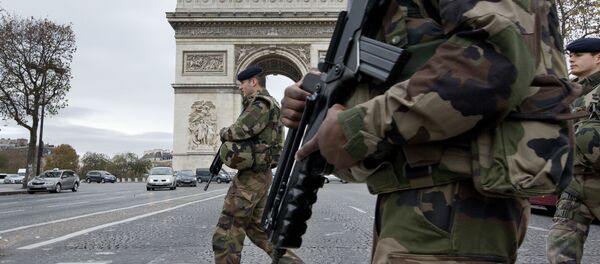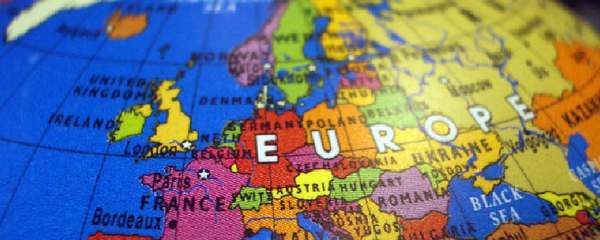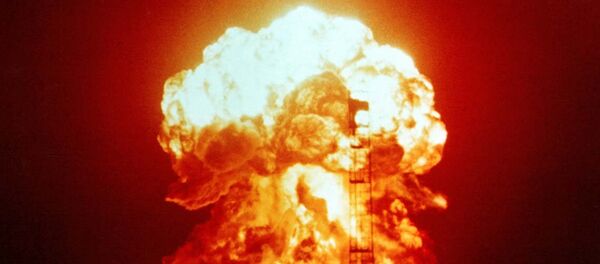In his magnum opus, Rachman pointed out that in the post-Cold War world, "the overwhelming power of the US military [had] long been the central fact of international politics. However, [today] in three crucial regions –Europe, the Middle East and East Asia – America's rivals have begun to test its resolve to use this power."
In the contemporary world, Rachman suggested, with a hint of ostentation, "it is American military might that guarantees borders all over the world. In the Middle East, the United States has giant naval and air bases, which exist to reassure friends and to intimidate rivals. In East Asia, the US Navy has become used to treating the Pacific as an 'American lake' – guaranteeing freedom of navigation and providing reassurance to its allies. In Europe, it is NATO that guarantees the territorial integrity of its member states, and the United States now accounts for a staggering three-quarters of NATO's military spending."
However, more and more, "these security orders are now under challenge in all three regions," from the crises in Ukraine and Syria, which Rachman chalks down to "Russian intervention," to China's island-building program in the South China Sea, which he suggests has challenged the previously unquestioned dominance of the US in the Pacific.
As for the situation in the Middle East in general and in Syria specifically, the journalist noted that Russia's direct military intervention in support of its allies in Damascus has served to underline "the extent to which the United States has lost control of the region following the upheavals of the Arab Spring and America's withdrawal of troops from Iraq. With the United States visibly reluctant to put 'boots on the ground' in the Middle East again, the Russians noted a power vacuum and moved quickly to fill it."
Perturbed, apparently, by Russia's campaign of air and cruise missile strikes against terrorist targets, whose accompanying video and satellite imagery he called "a mocking emulation of previous US military interventions in the region," Rachman could not help but admit the firmness of Russia's commitment to its allies, which serves as a stark contrast to the position taken by the US.
"The clarity of Russia's support for Syrian President Bashar al-Assad seems to mark a stark contrast to the confusion of US policy in Syria, where America sometimes seems to be opposed to both sides in a civil war, calling for an end to the Assad regime and the defeat of the Islamic State forces that are fighting him" at the same time.
"All three disputes," Rachman notes, "are a reminder that, despite voguish talk of a 'borderless world,' the control of territory is still fundamental to world politics. As Sir Robert Cooper, a former diplomat and accomplished theorist of international relations puts it: 'World orders are territorial orders. If you don't know who owns territory, you don't know anything about international order.'"
"More broadly, these three regional challenges pose a global question – how long can the United States, a country that represents less than 5 percent of the world's population and 22 percent of the world economy, continue to be the dominant military and political power in every significant region of the world?"
"That question," according to Rachman, "in turn raises further issues. First, what is the role for American allies in supporting the regional orders in Europe, the Middle East and East Asia? Second, should America make any concession to the idea of regional spheres of influence, particularly for China and Russia? Finally, should the United States be more selective about where it chooses to exert its power – or does the vision of an apparently hesitant America in one region, inevitably erode US 'credibility' all over the world?"
The (supposed) timidity and ambivalence of President Barack Obama's foreign policy, Rachman argues, is echoed by Washington's allies in Europe and Asia, if not the Middle East. There, "both Israel and Saudi Arabia have barely disguised their preference for US military action against Iran - and the Saudis have also regularly lamented America's failure to take a tougher stand against the Assad regime in Syria."
As far as Europe and the crisis in Ukraine is concerned, Rachman pointed out that America's NATO allies have themselves been divided and indecisive about how to react. "Generally speaking, the further east you get, the greater the demand for a tough American response, with the Balts and Poles leading the hawks." Germany, on the other hand, "was clearly opposed to supplying weapons to Ukraine, and industry recoiled at the imposition of sanctions upon Moscow."
In any event, the analyst noted, "beyond the elite level, opinion surveys suggest that the Europeans are less prepared to confront potential Russian aggression than Americans." With Pew recently reporting that 56 percent of Americans agree that the US should defend its NATO allies in case of 'a serious military conflict' with Russia, "the proposition did not get majority support in any European NATO member, including Poland – with support for a military response as low as 38 percent in Germany."
In Asia, America's allies were "similarly ambivalent about how confrontational the United States should be in responding to China," with virtually all of them dreading the thought of "being forced to make an overt choice between Washington and Beijing," and even Japan, whose prime minister has been more assertive in supporting the US, treading controversy at home amid "a deep strain of pacifism in Japanese public life."
Ultimately, according to the journalist, "lying behind the Russian and Chinese challenges to US power is a common dilemma. Should the United States accept that other major powers should have some kind of zone of influence in their neighborhoods?" The answer, Rachman argues, is yes. "The diffusion of economic power around the world –combined with simple common sense – suggests [that] some accommodation of the idea of 'spheres of influence' is necessary to lessen the risk of conflict."
Suggesting, rather unconvincingly, that there is "a strong element of propaganda in these claims," Rachman nonetheless concedes that "both the Russian and the Chinese governments…seem to genuinely fear that, unless they push back against US power, they too might ultimately fall victim to American-backed regime change."
Preempting the talking points of neo-conservative critics of President Obama's foreign policy, who have suggested that it is American weakness, indecisiveness and lack of credibility, rather than Washington's interventionism across the globe, which has made the world a more dangerous place, Rachman suggested otherwise.
"Those who worry that US power rests on the nation's willingness to always enforce its red lines are taking too much a view of what 'credibility' means for a great power. The willingness to honor security commitments is just one element. Not making terrible mistakes in foreign policy is another crucial part of credibility –as is the preservation of a strong economy and an attractive society. The biggest blows to US global power and prestige since 2000 were self-inflicted ones –the Iraq war and the financial crisis of 2008. Neither had anything to do with an unwillingness to defend a red line or a reluctance to fire off cruise missiles."
"In fact," Rachman suggests, "arguably the two biggest dents to American global standing in half a century both flowed from mistaken military interventions, with Iraq repeating some of the damage done by Vietnam." And, taking a look back through history at the important role of the economy in the decline of great empires, the journalist notes that "with China soon to surpass the United States as the world's largest economy, America cannot assume that it is able to afford to make costly military mistakes long into the future."
Ultimately, according to Rachman, instead of risking military conflict with other world powers, including China and Russia, the US "has no option" but to work with these countries. "Seeking to preserve a working relationship with Beijing, and even Moscow, is not weak. It is simply imperative."









